7 Ways to Keep Your Workshop Clean
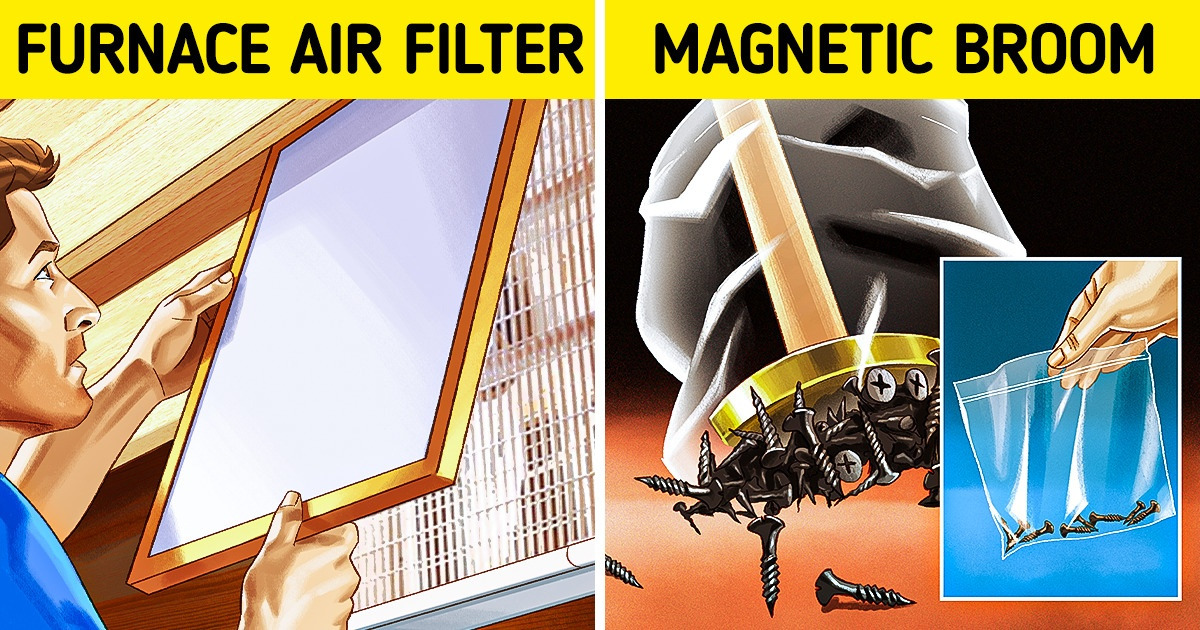
Maintaining a clean workshop after a long and hard project is difficult. Even though you might have just finished cleaning, a workshop can look messy and disorganized. Understanding the things that make it look messy is the key that will help you solve the problem.
To help you avoid these situations, 5-Minute Crafts has prepared some useful ways to help you keep your workshop clean.
1. Quick cleanups in the middle of work sessions
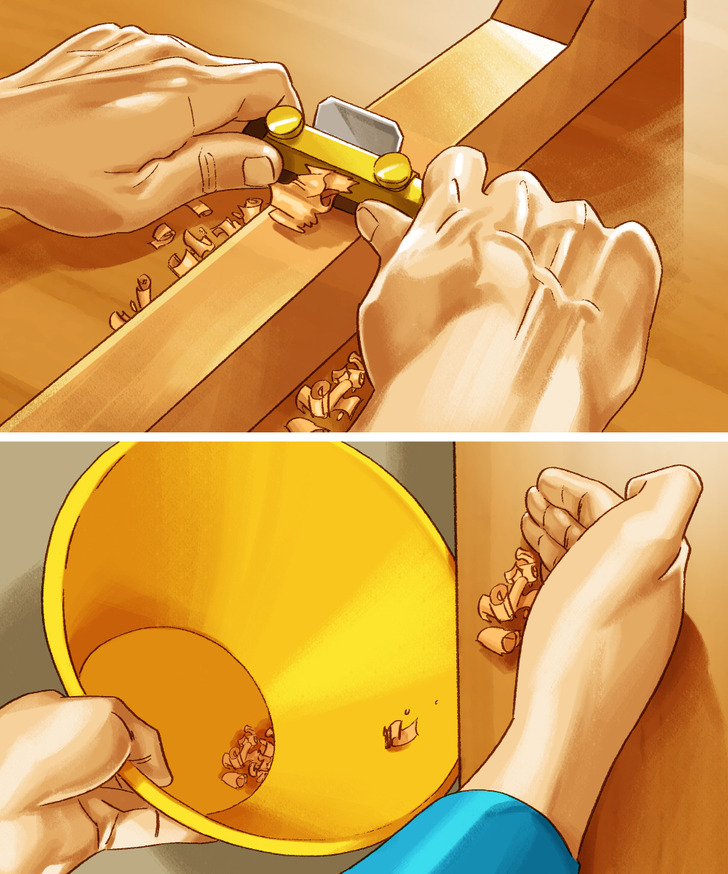
Practice doing quick cleanups between the breaks to avoid a big mess after finishing up a project. This way you will save time and your workspace will be much cleaner. The best way to remember to do quick cleanups is to have a trash can nearby. You can simply buy one at the store or reuse old bins and metal cans. The cleaner the space, the more productive you will be.
2. Complete cleanup after finishing work
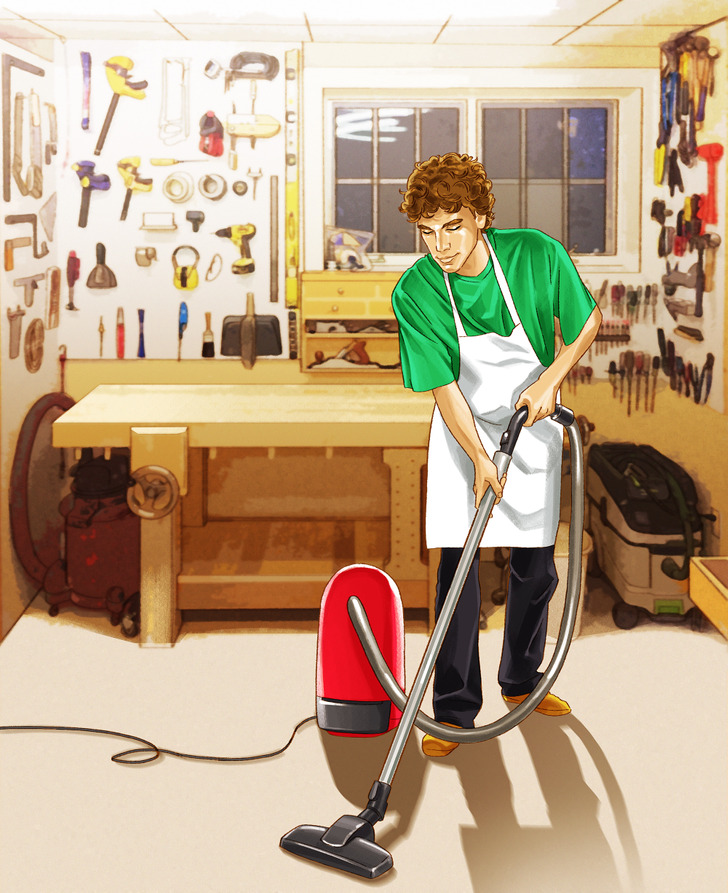
Try to clean the workshop as much as possible after a work session. Start by mopping or vacuuming the dust and garbage that is laying on the floor. Use a longer broom or vacuum cleaner to clean the floor and a small broom for the working desk. If the crevice tool on the vacuum isn’t long enough, try to put an empty paper roll tube into the crevice tool. You can use the paper roll tube inside of a long wrapping paper roll. Secure it with tape and catch the dust in places that are usually inaccessible.
3. Cover the bigger items to protect them from dust
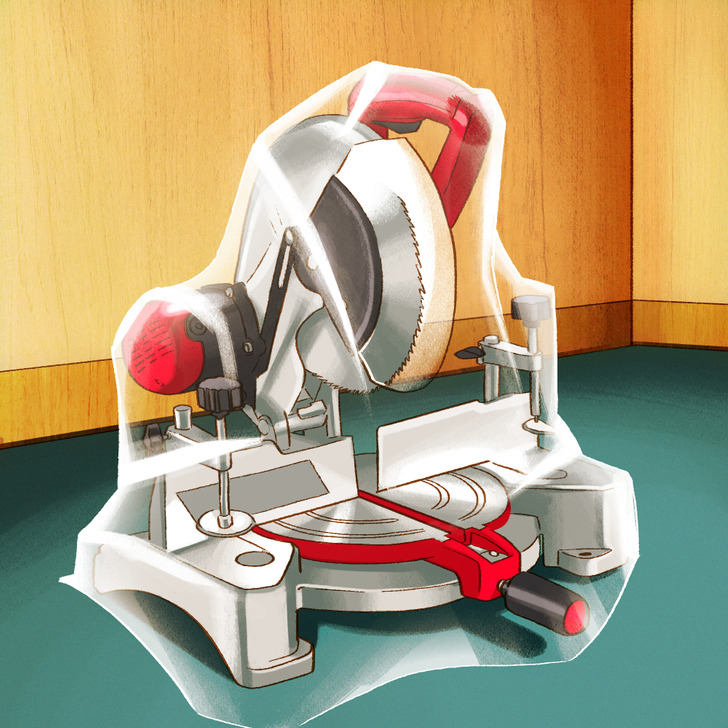
Whenever you cut materials, cover all the bigger items with plastic bags or fabric to protect them from dust. Any dust that gets dispersed will accumulate on the covers, so you can easily ball up the covers and shake them outside. This method will save you a lot of time.
Note: The dust might stick to the motors and they can stop working. Also, inhaling dust may cause health problems.
4. Organize your things in boxes
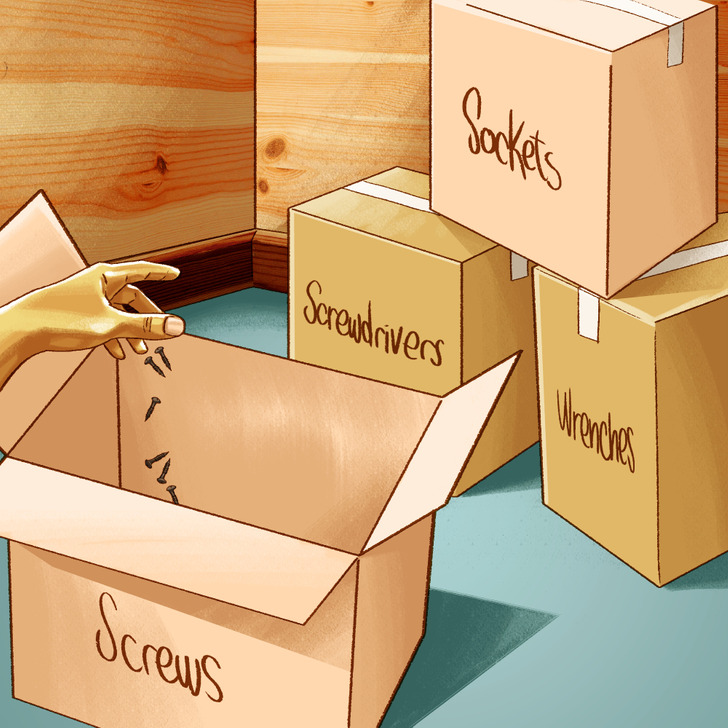
Whether it’s in big boxes, plastic, or metal containers, being organized can have a big influence on your work session. Group similar tools together and get rid of things you don’t need. Make separate spaces for mechanics, woodworking, and decorating tools and put them in a bin with the correct labels on them. Organize tools like screwdrivers, sockets, and wrenches according to their sizes, keeping them in the same place.
5. Magnetic broom for screws and nuts
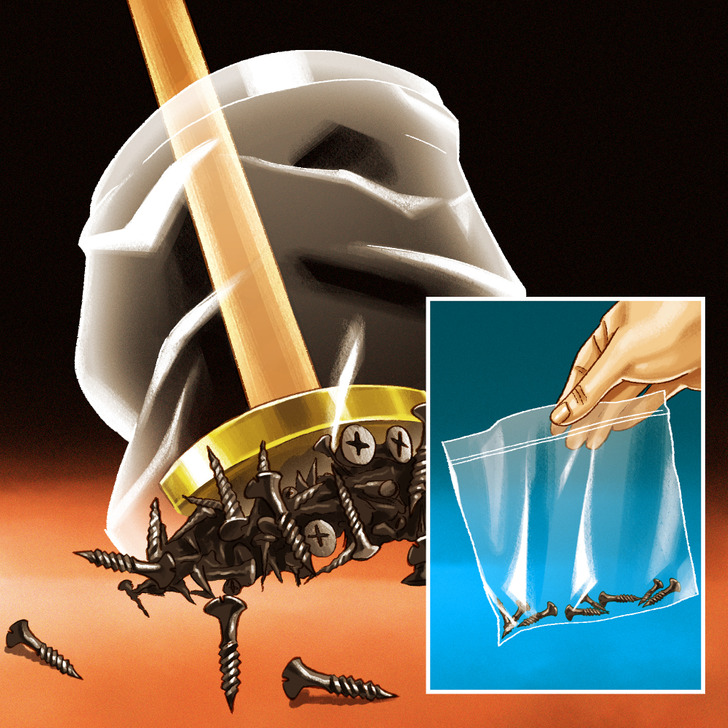
We often lose or spill screws and nails on the floor while working. The floor might be full of dust and we might throw them out when cleaning it. Instead of picking them one by one, try using a magnet. Put it on a wooden handle and place a zip-lock bag over the magnet. As you ’sweep’ the floor, the screws will attach to the magnet and go into the bag. Remove the bag after you are done.
6. Cheap air cleaning

Owning a dust collector plays a huge role in keeping a clean workshop. Consider making your own if you don’t have one. Start by attaching a furnace filter, using hook-and-loop tabs, to the air intake side of a box fan. Hang the fan between the ceiling joists. Switch it on so that tiny dust particles from sanding and sawing can be drawn into the filter by the vacuum made by the fan.
7. Put items in the most easily-accessible spots
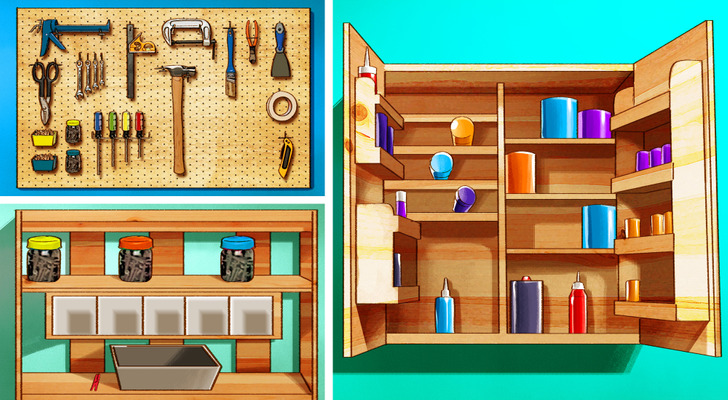
We subconsciously declutter things on work desks or floors when we are doing something in the workshop. This messes our space up even more. Instead of keeping them in one place, try to install enough pegboards, shelves, and cabinets in the workshop. Mount them on the walls and organize your tools.
Pegboards are good for organizing the tools you commonly use because they make them visible and easy to access. The cabinets are good for storing things that don’t need to be seen and that might make the place look dirty, like cables and wires. The open shelves are a great alternative for tools that you need on hand more frequently.
Do you have any practical tips that you yourself use to keep your workshop clean?